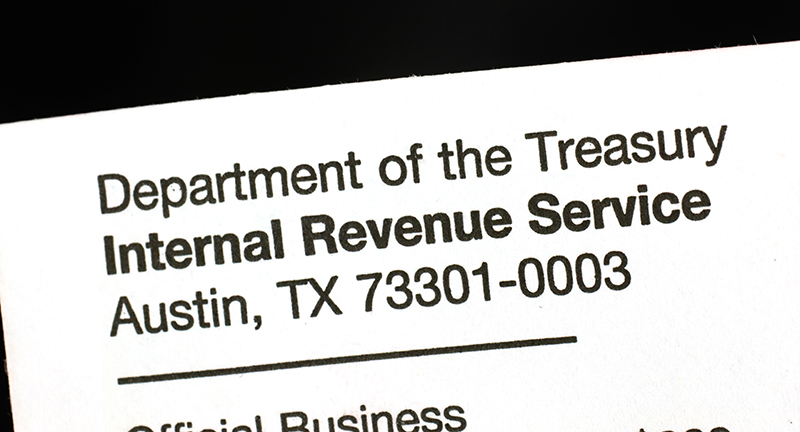5 Tips on What to Do If You Receive an IRS Letter
July 01, 2016 by Charla Suaste
Once filing season ends mid-April, most Americans wipe their brows, exhaling sighs of relief that their yearly tax ordeal is over. Unfortunately, not all taxpayers may be in the clear, despite the season coming to a close. Even during the thick heat of summer, the IRS is still working nonstop – cranking out notices and audit letters to taxpayers around the country.
Naturally, there is nothing more unnerving than seeing the words “Internal Revenue Service” printed on an unexpected envelope in your mailbox. It’s enough to make any of us to want to stick our head in the sand or take a permanent vacation. And we have known many taxpayers to take one of those two routes!
Unfortunately, a notice from the IRS will not magically disappear and the best way to get the weight of that letter off of your shoulders is to deal with it immediately – as uncomfortable as that may feel at the outset. For that reason, we have created a list of 5 quick tips on how to deal with any IRS letter you receive to help make the process as quick and painless as possible:
- Be proactive.
We know you want to toss that letter in the junk pile or stick it at the bottom of your to-do list, but the best course of action is to simply open the envelope and read the notice from top to bottom. The issue may be more painless than you expect it to be and knowing what you are up against helps you create a plan of action on the next step to take.
- Pay attention to detail.
Upon reviewing the notice, take note of the tax issues they are reviewing and the deadline dates that have been set by the IRS. The notice will also include detail on how to respond to the letter, along with contact information for the IRS. All this information will be crucial for you to determine how you need to proceed.
- Keep a copy of the notice in a safe place.
You will need the information on the notice for all future interactions with the IRS.
- Call us!
If you have an audit defense membership, we will assign a tax professional to your case, who will ensure you never have to meet or speak with the IRS.
- Don’t let emotion get the best of you.
Whether you opt to use our services, call a local tax professional, or handle the notice on your own, the best advice we can give to you is to not let emotions get the best of you in any interaction with the IRS. Money is a life-changer for most of us; any conversations revolving around that topic naturally feels like a threat to our well-being. However, staying mindful and allowing yourself to see things logically instead of emotionally will help give you greater clarity and peace of mind no matter what the outcome.
For questions about how to respond to the IRS, please visit IRS.gov and peruse the variety of resources they have made available to taxpayers like you. For more information about our Audit Defense Memberships, please contact our Customer Service Department at 800.922.8348.





